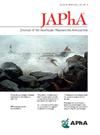Ensuring safety in cytotoxic drug preparation: A systematic review of guidelines addressing education for pharmacy professionals
IF 2.5
4区 医学
Q3 PHARMACOLOGY & PHARMACY
Journal of the American Pharmacists Association
Pub Date : 2025-05-01
DOI:10.1016/j.japh.2025.102352
引用次数: 0
Abstract
Background
Chemotherapy preparation involves the use of specific techniques and equipment, given the need to maintain preparation sterility and its strict prescribed composition, and avoid occupational exposure to cytotoxic agents.
Objective
This study aims to identify the most relevant contents for pharmacy professionals' education and training programs and to elucidate the evaluation procedure these professionals should follow when handling cytotoxics.
Methods
We adopted the Preferred Reporting Items for Systematic Reviews and Meta-Analyses guidelines in conducting and reporting this systematic review. We conducted a literature search in PubMed, Cochrane, and Literatura Latino-Americana e do Caribe em Ciências da Saúde to identify guidelines on cytotoxic drug preparation published between 2004 and 2024. Inclusion criteria included guidelines written in English, Spanish, or Portuguese that addressed the education, training, and/or evaluation of pharmacy professionals involved in handling cytotoxic drugs. We excluded guidelines developed for other health professionals (e.g. nurses) and guidelines exclusively addressing the manipulation of oral dosage forms. Citation searching was also performed to avoid search biases. Three researchers independently selected 20 guidelines that met the inclusion criteria, out of 3781 unique references identified. Four appraisers assessed the guidelines using the Appraisal of Guidelines for Research and Evaluation-II tool.
Results
Recommendations for training in cytotoxic drug handling generally included preinitiation and periodic assessment. Personal protective equipment and engineering controls use, spill management, and aseptic technique were the most frequently mentioned specific training contents. We have developed a training proposal based on the guidelines, with 4 training levels that address the specific identified content. Each level presents potential competency assessment strategies.
Conclusion
Included publications frequently recognized that conducting educational programs before and during the preparation of cytotoxic drugs was important and the combination of theoretical and practical learning seems of the utmost relevance. The development or update of guidelines in this area should prioritize their effective applicability to facilitate their implementation.
确保细胞毒性药物制备的安全性:对药学专业人员教育指南的系统回顾。
背景:化疗制剂涉及使用特定的技术和设备,需要保持制剂的无菌性及其严格规定的成分,并避免职业暴露于细胞毒性药物。目的:探讨药学专业人员在处理细胞毒素时应遵循的评价程序,为药学专业人员的教育培训提供最相关的内容。方法:我们采用了系统评价和荟萃分析的首选报告项目指南来进行和报告本系统评价。我们在PubMed、Cochrane和LILACS中进行了文献检索,以确定2004年至2024年间发表的细胞毒性药物制备指南。纳入标准包括以英语、西班牙语或葡萄牙语撰写的指导方针,涉及处理细胞毒性药物的药学专业人员的教育、培训和/或评估。我们排除了为其他卫生专业人员(如护士)制定的指南和专门针对口服剂型操作的指南。还进行了引文检索以避免检索偏差。三名研究人员独立选择了20个符合纳入标准的指南,从确定的3781个独特参考文献中。四名评估师使用AGREE-II工具对指南进行了评估。结果:推荐的细胞毒性药物处理培训一般包括启动前和定期评估。个人防护装备和工程控制的使用、泄漏管理和无菌技术是最常被提及的具体培训内容。我们根据指导方针制定了一个培训建议,其中包含四个培训级别,以解决特定的已确定的内容。每个层次都提出了潜在的能力评估策略。结论:包括的出版物经常认识到,在制备细胞毒性药物之前和期间进行教育计划是重要的,理论和实践学习的结合似乎是最相关的。该领域准则的制定或更新应优先考虑其有效适用性,以促进其实施。
本文章由计算机程序翻译,如有差异,请以英文原文为准。
求助全文
约1分钟内获得全文
求助全文
来源期刊
CiteScore
3.30
自引率
14.30%
发文量
336
审稿时长
46 days
期刊介绍:
The Journal of the American Pharmacists Association is the official peer-reviewed journal of the American Pharmacists Association (APhA), providing information on pharmaceutical care, drug therapy, diseases and other health issues, trends in pharmacy practice and therapeutics, informed opinion, and original research. JAPhA publishes original research, reviews, experiences, and opinion articles that link science to contemporary pharmacy practice to improve patient care.

 求助内容:
求助内容: 应助结果提醒方式:
应助结果提醒方式:


